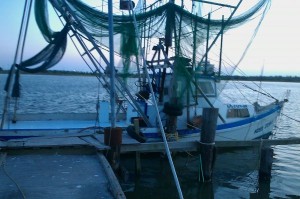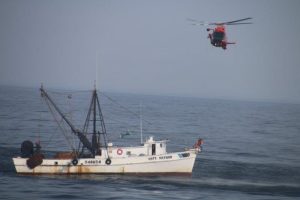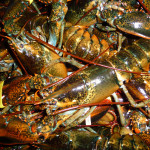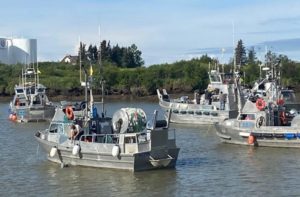CATCH SHARES NOT A VIABLE OPTION FOR THE NORTHEAST
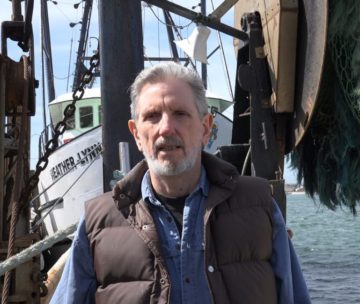 The following is an excerpt from an article I was working on for a [email protected] series on catch shares. It got too long to post, so it sits in my computer files and I thought I’d get bits of it out—just for the Halibut? (More will follow) Dick Grachek
The following is an excerpt from an article I was working on for a [email protected] series on catch shares. It got too long to post, so it sits in my computer files and I thought I’d get bits of it out—just for the Halibut? (More will follow) Dick Grachek
CATCH SHARES NOT A VIABLE OPTION FOR THE NORTHEAST
Theoretical constructs that might hold together logically and appear sound often quickly disintegrate in the atmosphere outside their esoteric bubble. This was certainly the case for catch shares or transferable quota management in the New England groundfishery. Catch shares in New England disintegrated almost upon entry.
What are catch shares and where did they come from?
Catch shares or the commoditization of the fish poundage to be caught, or the ownership of the “right” to harvest a certain portion of the government managers’ scientifically sanctioned total yearly catch, is a construct of “free market environmentalism” theory. The “enviropreneurs” or “enviro-capitalists” claim that ownership equals good stewardship, equals profitability. This privatization push is actually an idea of economics, claiming production “efficiency”, and not one of fishery conservation—although the sales pitch promotes this scheme as the answer to “overfishing”, and just in the nick of time.
The Claim: Fish populations worldwide are imperiled from overfishing.
The Remedy: Individual Transferrable Fishing Quotas, or catch shares, will stop overfishing by making fishing operations more “efficient”, therefore making fishermen more profitable, and therefore they will become more “responsible stewards”, and therefore sustain the health of the resource.
Catch shares management is the private ownership of the shares of a natural resource (sort of an ocean eminent domain grab). Catch shares are an extension of the faulty deregulated free-market theories of economists such as Milton Friedman, which in this case have evolved into the concept of Free Market Environmentalism which is the approach of …ownership equals responsibility; or render a commodity profitable enough and somehow the owners and the mechanism of market capitalization will automatically stabilize and sustain that resource or industry (think about the corporate “stewardship” of our resources, so far). For a natural resource such as a fishery this thinking is based on the following principles:
– Private property rights encourage stewardship of resources
– Market incentives spur individuals to improve environmental quality
– Government controls and subsidies often degrade the environment
– Polluters should be liable for the harm they cause to others
(This “enviro-capitalist” information can be found at PERC, Property and Environment Research Center, a “think tank” located in Bozeman, Montana, which proclaims itself as having …“championed the successful approach [ITQ’s] to eliminating overfishing” http://www.perc.org/search?search_api_views_fulltext=ifq+for+fisheries&=Search )
So, theoretically, everyone then goes home happy: the fish are saved, the fishermen are profitable and much safer, the consumers get their seafood dinner, and the investors see a 400% return. (This 400% promise of riches was a prediction made by David Festa, the Environmental Defense Fund Finance V.P. during a Milken Institute Conference—he was raising money for catch shares in order to “grease the skids”, as he pitched to investors, months before catch shares were officially approved by NOAA.)
None of those catch shares promises actually panned out (I don’t think even for the investors), not in New England at any rate—and I understand a few other fisheries see catch shares as a failure as well.
Catch shares were considered for the New England Groundfishery initially in 1995. However, after some research and deliberation, the Staff of the New England Fisheries Management Council concluded that although these ITQ programs did improve the economic efficiency of some fisheries, there was little evidence that they improved the biological condition of the stocks. They specified that the Catch Shares or ITQ scheme was not practical for the diverse multi-species nature of the New England Groundfishery. They also noted that groundfish stocks at that time were in trouble worldwide, including those managed with ITQ’s or catch shares.
The New England Council and the National Marine Fisheries Service did not revisit the idea of catch shares again for several years. Rejecting catch shares, especially for New England, was intelligent and sober management at that time. However, in the early 2000’s after an extensive media advertising campaign by major foundation funded environmental NGOs, making dire predictions for the fish stocks and pitching a “new approach” as the only way out, catch shares were back in the news—and eventually back “on the management table”.
However, nothing in the fishery world that made catch shares management untenable in 1995 had actually changed—other than a well-orchestrated and well-funded all out media marketing blitz to push them. In fact, the stocks at this time (2009-2010) were in the best shape since NOAA began keeping records. http://www.nmfs.noaa.gov/sfa/fisheries_eco/status_of_fisheries/archive/2009/fourth/q4_2009_fssi_summary_changes.pdf )
The “conservationist” media and lobbying campaign to market and then to install catch share privatization involved tens of millions of dollars of “altruistic investments” by The Walton Foundation, Pew, Packard, Betty Moore, and a few other wealthy “captains of industry” Foundations, then funneled through the public relations departments of “environmentalist” NGOs, such as, the Environmental Defense Fund, Oceana, Ocean Conservancy, etc.


































